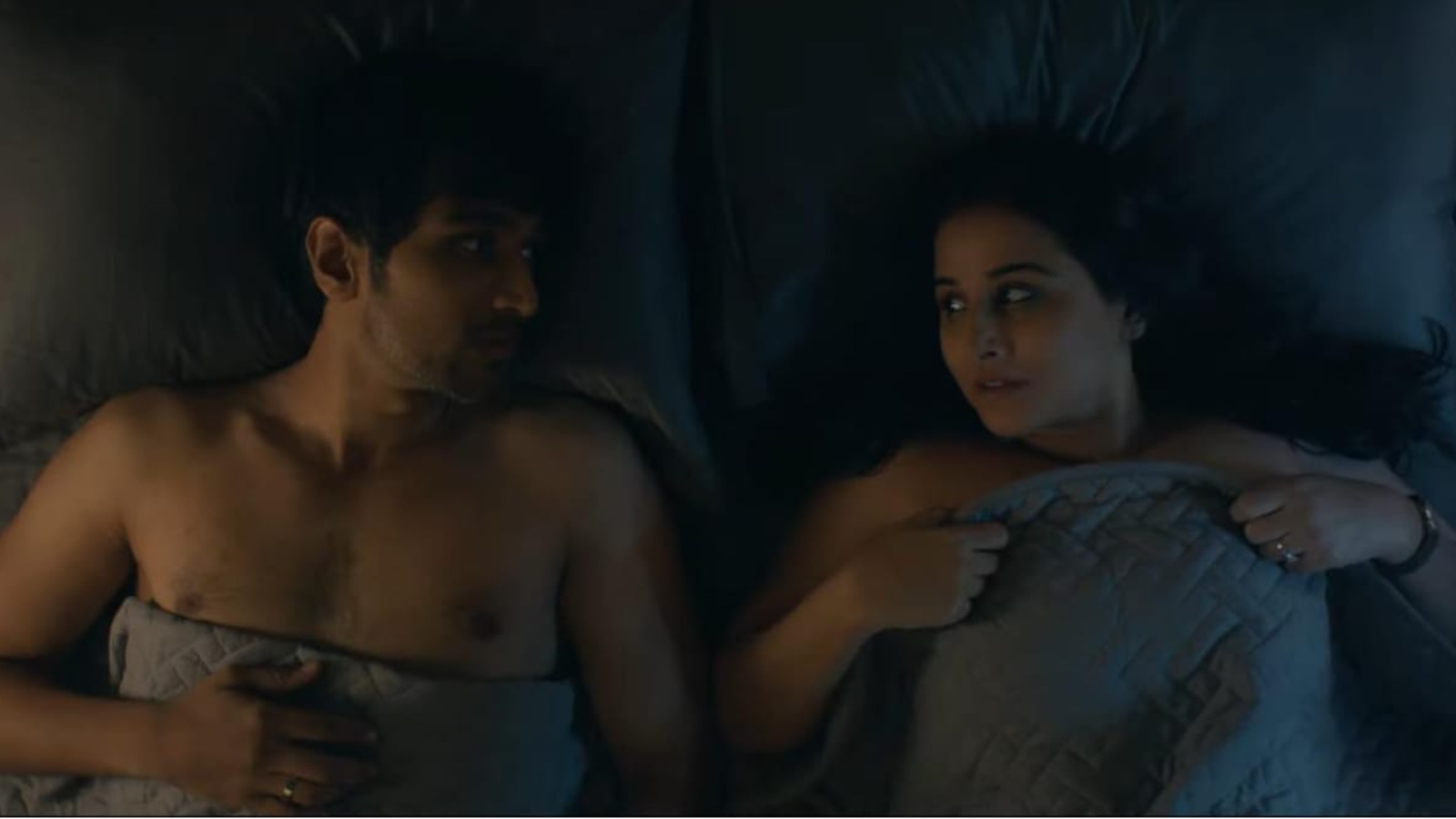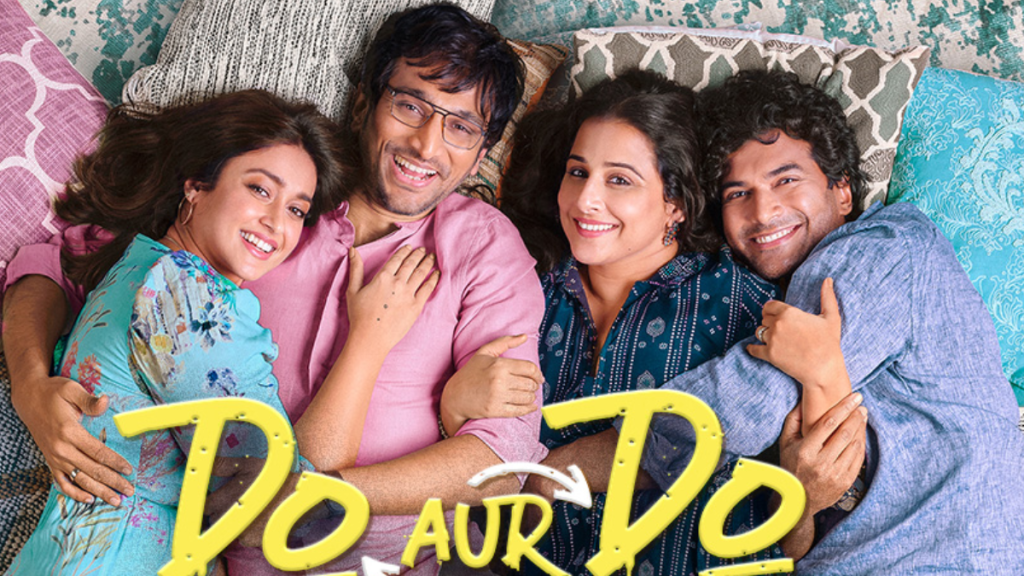Cast: Vidya Balan, Pratik Gandhi, Ileana D’Cruz, Sendhil Ramamurthy
Director: Shrisha Guha Thakurta
Striking a balance between light-hearted and heart-warming perspectives on marriage and extramarital affairs, ‘Do Aur Do Pyaar’ connects emotionally through its highly credible leads and clever script. It probes whether love alone can maintain a relationship without becoming emotionally overwhelming and concludes on a safe yet satisfying note. Director Shrisha Guha Thakurta accurately captures the essence of urban, upper-class relationships. The film avoids passing judgment on infidelity or demonizing anyone in the dynamic. Drawing inspiration from a famous quote by American actor-writer Groucho Marx, it subtly yet insightfully challenges the conventions of marriage. As the story progresses, the palpable sexual tension and emotional shifts among the characters feel authentic and engaging.
Ani Banerjee (Pratik Gandhi) and Kavya (Vidya Balan) are navigating the stagnant waters of their love marriage. Sharing a bed yet emotionally distant, they no longer clash, having found love and intimacy elsewhere.
Ani has started seeing rising star Nora (Ileana D’Cruz), while Kavya has captivated the attention of renowned photographer Vikram (our very own handsome Sendhil Ramamurthy).
Inspired by Azazel Jacobs’s ‘The Lovers’ (2017), the film introduces a twist as Ani and Kavya begin to reconnect. Their renewed intimacy starts to jeopardize their external relationships. Drawing from Hrishikesh Mukherjee/ Basu Chatterjee’s relatable storytelling style, writers Amrita Bagchi, Eisha Chopra, and Suprotim Sengupta weave family, festivals, and funeral themes into a narrative exploring unmet expectations and illicit affairs. The script cleverly uses everyday life as a backdrop to elicit laughter and reflection.
The screenplay breathes new life into a potentially clichéd theme, using the salty Bombay Sea to symbolize deteriorating relationships, laugh lines to capture the beauty of aging and timeless charm, and even vegan food choices to add depth. The squabbles over Bangla cuisine and stainless steel utensils effectively highlight the cultural rifts in an inter-community marriage. Importantly, characters like Nora and Vikram are portrayed not as emotional leeches but as individuals caught in complex situations. Ani and Kavya manage their extramarital relationships without overt moral judgment; they are portrayed as reacting to life’s challenges.
Ani, having lost his vibrant spirit after his father’s death, retreats into himself, leaving Kavya feeling neglected and unimportant. At home, Kavya’s decisive nature overwhelms Ani, while outside, the wandering photographer seeks the domestic warmth Kavya offers, and Nora looks to Ani for support as her career struggles persist. The writers focus on crafting meaningful moments rather than forcing connections, enhancing the narrative’s richness. The actors, especially Vidya and Pratik, inject energy into the script, smoothing over any excesses in wordplay. Their ability to navigate between tragic and comic, sharp and vulnerable, adds a dynamic pulse to the film, underscored by their effortless chemistry and comedic flair.
Once again, Vidya masterfully portrays a woman searching for validation, shedding any trace of vanity to expose emotional vulnerabilities. The narrative requires her to navigate both the sensual and frustrating aspects of Kavya’s character, and Vidya ensures these transitions are seamless. Pratik, an underappreciated talent in the Hindi film industry, excels as an everyman.
He skillfully portrays a character who neither dominates the relationship nor fully reveals his emotions. In a poignant scene where he plays football while holding a mobile phone, Pratik subtly captures the nuanced indecision of Ani’s character.






